This morning, I read some comments on the official website that really got me thinking:
‘œ’¦Benayoun admits that while the Liverpool players were celebrating a famous win in the Bernabeu dressing rooms last week, the manager was already focusing on the next challenge.
“It was madness in our changing rooms in Madrid last week, after we won, and I had to take my mobile phone into the toilets to call my family. It was the only way I could make myself heard,” he added.
“Everyone was screaming and shouting, except for the manager, of course. He was his usual calm self. He didn’t even congratulate us or shake hands, never mind join in all the hugs and backslapping that was going on.
“That’s just how he is, and I am beginning to understand why. He is very professional, and he wants us to be the same all the time. He won’t stand for any of us getting carried away or feeling we are superior to anyone else.
“He likes keeping you on your toes. He only announced the team two hours before kick-off.”
When Yossi made this statement, he certainly meant it as a complement, and he is not alone. Many of our players have spoken about their admiration for Rafa’s professionalism and focus and dedication to the task. It has been said countless times how amazing it is that he studies every detail of every match and every movement, how he has a very intellectual approach to the game. Past players and current players alike have all marveled at his methods and his great tactical mind. We’ve seen the benefits of this as he has often crafted tactics that have neutralized the attacking threats of Lionel Messi, Cristiano Ronaldo, Arjen Robben, Drogba, Lampard, and Kaka, and posed a few attacking questions of our own while subduing some of Europe’s great teams over the last several years. And we can all remember the way his Valencia tore us to shreds at Anfield not that long ago.
In truth, Rafa’s methods have served us well, seeing us closing the gap to the champions and seeing us writing our name in Champions League history, with hopefully more glory to come this and subsequent seasons.
However, there’s an element to Rafa’s approach that naturally frustrates certain players and fans. He is so focused on the details that at times it’s as if he has removed the human element of the game. Don’t get me wrong – I believe Rafa’s methods work – there’s enough evidence in our steady improvement over the last several years. But although I may disagree with the conclusions that his detractors arrive at, there is no doubting that there is some validity to the concern that his approach to the game is a bit too “machine-like” (as his detractors put it), with a heavy focus on processes and methodology, which arguably can limit the creativity of players (see Pennant and Bellamy for good examples of the kind of player/attitude that doesn’t fit too well into Rafa’s system).
 Certainly, with this mindset, it’s a little easier to understand Rafa’s love for Dirk Kuyt – the one aspect of our manager that has baffled and frustrated me the most. I appreciate everything Dirk Kuyt has done for our team – he has scored some crucial goals, and his effort is plain as day. But Dirk Kuyt for all his industry has as much creativity as a lobotomized tax collector and the first touch of a clumsy rapist. But give him some instructions, tell him to do X, Y and Z and he’ll run his legs off trying to do exactly what his manager wants from him. This kind of industry and dedication to a process, to a method and to a specific set of instructions makes Dirk Kuyt a valuable piece of Rafa Benitez’ system.
Certainly, with this mindset, it’s a little easier to understand Rafa’s love for Dirk Kuyt – the one aspect of our manager that has baffled and frustrated me the most. I appreciate everything Dirk Kuyt has done for our team – he has scored some crucial goals, and his effort is plain as day. But Dirk Kuyt for all his industry has as much creativity as a lobotomized tax collector and the first touch of a clumsy rapist. But give him some instructions, tell him to do X, Y and Z and he’ll run his legs off trying to do exactly what his manager wants from him. This kind of industry and dedication to a process, to a method and to a specific set of instructions makes Dirk Kuyt a valuable piece of Rafa Benitez’ system.
This is where I part company with Rafa’s critics. They believe that if Rafa remains in charge, all we have to hope for are more players like Dirk Kuyt, and more “shit on a stick” as one critic put it, with our team trying to wear down the opposition and to nullify their threat, without much creativity, as opposed to actually tearing weaker opponents apart and stamping our own creative authority on matches. They point to the way United dismantle weak opponents and say this is what we should be doing, as if they have never seen a Benitez team play good football.
I part company with Rafa’s critics, not because I disagree that this is what we should be doing, but because having really thought long and hard about Rafa’s approach, I think that’s exactly where we’re headed.
Here’s why.
Rafa discussed his idea of good football himself last summer during the Euros: [Link]
‘œIn the first place, I will let you know that my idea of good football and my concept of a good team relies on team order, balance on defense and cutting-edge on attack. To accomplish this you need players who are able to read the game well, who know when it’s time to play short or long passes, when you need to attack through the middle or down the flank, when it’s time to keep possession of the ball or when you need to start a quick counter-attack. I’m talking about real footballers, who will take advantage of their abilities to help the team win by playing as well as possible, who will be able to adapt when needed, who will try to impose their style of play, but who can also vary that style for the benefit of the team and to help it win games.
‘œIn today’s football, cutting-edge in attack is becoming more and more of a collective or tactical effort [that] depends more on a group of players or positioning on the pitch than on a single player. This is why a skillful player tends to draw our attention more often, but we must be able to distinguish between the skillful player and the cutting-edge player.’
Many of Rafa’s detractors look at our team and notice the absence of the magician type of player – the skillful player who can cut through an opponents defense with stepovers, twirls, curtseys, flicks and flashes. Notice in the first paragraph of Rafa’s description above, he does not mention flare or flamboyance or magical ability. In that article, Rafa does discuss the much heralded desequilibrante, which is above translated as “the cutting edge player”.
‘œ…we must be able to distinguish between the skilful player and the cutting-edge player (or desequilibrante). The first will dribble or dwell on the ball showing his technical ability; the second wins matches, is a constant threat to opposing teams and the solution for his team-mates when they can’t find their way. With a single touch he can find an open team-mate, he can find an open space when and where he should, makes an effort to do things the right way and always tries to do what will benefit his team the most. In other words, he will play good football in order to win matches, not just for show.’
Many misunderstood what Rafa was saying. Some thought what Rafa meant by the desequilibrante, was the “skilful player capable of producing magic”. But if you actually read what he said, Rafa values the player who will play good football in order to win matches, not just for show.
The crucial statement that Rafa made (which gives a lot of insight into his idea of how to win things) is worth repeating:
‘œIn today’s football, cutting-edge in attack is becoming more and more of a collective or tactical effort [that] depends more on a group of players or positioning on the pitch than on a single player.’
Rafa wants his team to have that cutting edge, but he does not feel the solution is to have a bunch of Arjen Robbens doing tricks and turns for the sake of doing tricks and turns. This philosophy has worked well for Rafa in that he has achieved success without having to (or being able to) spend big on players like Robben. Part of the reason we have done well in Rafa’s first 4 years and have almost replaced an entire squad in decline (41 of Houllier’s squad have been sold since Rafa arrived) and the reason that this entire new squad has been built with a net spending of £82M, is because Rafa has not sought to build a team that relies on having Galacticos. (And it’s a good thing he hasn’t tried to, because we haven’t had the money for it!)
 Anyone can tell you that the heart of the current Liverpool team is Steven Gerrard. Gerrard is the quintessential desequilibrante. He has neither Ronaldo’s nor Messi’s skillful footwork. He can get past a player, but he doesn’t have the sort of show-boating ability of the Denilsons of world football. He is not blessed with the silky skills of Robinho. But Steven Gerrard‘s abilities and footballing brain means he will be playing for many years when his pace erodes and will still be at the top level at an age where most players will retire.
Anyone can tell you that the heart of the current Liverpool team is Steven Gerrard. Gerrard is the quintessential desequilibrante. He has neither Ronaldo’s nor Messi’s skillful footwork. He can get past a player, but he doesn’t have the sort of show-boating ability of the Denilsons of world football. He is not blessed with the silky skills of Robinho. But Steven Gerrard‘s abilities and footballing brain means he will be playing for many years when his pace erodes and will still be at the top level at an age where most players will retire.
“The [desequilibrante] wins matches, is a constant threat to opposing teams and the solution for his team-mates when they can’t find their way. With a single touch he can find an open team-mate, he can find an open space when and where he should, makes an effort to do things the right way and always tries to do what will benefit his team the most. In other words, he will play good football in order to win matches, not just for show.”
If that’s not a description of Steven Gerrard, then I don’t know what is. So although Rafa has put a lot of value in Dirk Kuyt and values his work rate and will probably keep Kuyt in his squad for many years to come, his ideal player is a player like Steven Gerrard. This is perhaps why Rafa pursued Gareth Barry, because in many regards, Barry is more similar to Gerrard than any other player in theh premiership (with the possible exception of Frank Lampard). And if Rafa could get Gerrard to become the player he is now, I’d bet he might have been able to get a lot out of Barry.
I heard someone say recently that in every great team you need two kinds of players. The type who will run straight through a wall in order to score a goal, and the other with the technique and ability to go around the wall. Dirk Kuyt, Carragher and Mascherano fall into the first category. Gerrard, Torres and Benayoun fall into the latter. Certainly we need more of the latter, but it’s important to have both types of players.
Since we often compare ourselves to United, I may as well discuss Alex Ferguson. His approach wasn’t that different from Rafa’s (although his first years were distinctly mediocre by comparison). His greatest signing was Eric Cantona. Eric Cantona was a desequilibrante. He was clever and had skill, but he did not do tricks for the sake of doing tricks. Much like Gerrard, Eric Cantona won matches. He had cameos of brilliance and was perhaps more skillful on the ball than Gerrard is, but his influence on the Unoted team was no more than Gerrard’s influence on Liverpool. The main difference was that United had already built the rest of their team (and it had taken the better part of a decade under Ferguson) and they just needed to add Cantona to produce a title winning team. They had wingers and a strong defense and just needed a really top quality desequilibrante. Liverpool were blessed with Gerrard and Rafa has been steadily building the rest of the team since he got here.
One of Ferguson’s recent great buys is Cristiano Ronaldo, and he has been compared to some of Uniteds best players ever. He is without a doubt a brilliant player, but we’ve all noticed how he often disappears against big teams. Ronaldo won world player of the year, because of what he does against the likes of Bolton and Wigan that aren’t able to nullify his threat tactically, and who don’t have clever fullbacks and defensive midfielders who effectively remove him from games. Just think how Arbeloa and Aurellio have been able to nullify Robben and Lionel Messi in our matches against Barcelona and Madrid respectively, and you see the difference between a skillful player and a desequilibrante. The crucial thing here is that while quality teams are able to nullify Ronaldo’s threat, I don’t think anyone ever found a way to nullify Eric Cantona’s threat.
And yet Cristiano Ronaldo won world player of the year for a reason. And it’s against the smaller teams that we have struggled, which makes a very strong case for the need for a player with the ability to tear small teams apart, even if he isn’t as effective against the big teams. I’m sure if you offered Rafa Benitez Cristiano Ronaldo, he’d snap your wrist off.
 In fact, looking at some of the players Rafa has pursued suggests to me that although he values a player like Gerrard over a player like Ronaldo, he is aware that skill and creativity are crucial to having a team capable of controlling a game and winning matches at will. Simao, Dani Alves, and David Villa are not as skilful as Ronaldo, but they all have the kind of skill that it takes to open up stubborn defenses. And that’s exactly what we need.
In fact, looking at some of the players Rafa has pursued suggests to me that although he values a player like Gerrard over a player like Ronaldo, he is aware that skill and creativity are crucial to having a team capable of controlling a game and winning matches at will. Simao, Dani Alves, and David Villa are not as skilful as Ronaldo, but they all have the kind of skill that it takes to open up stubborn defenses. And that’s exactly what we need.
Part of why I have confidence in Rafa is partly because he has pursued this kind of player in the past, suggesting that with total control of transfers, in the future he will be more likely to close these kinds of deals that we have narrowly missed out on in the past. The rest of my confidence in Rafa stems from my belief that he is no fool. As a man who studies the game as carefully as he does, who as Yossi said, is always thinking about the next challenge and quickly moves on from past successes to prepare for future tests, Rafa can not fail to notice the need for more players with the kind of ability that Yossi, Simao, and David Villa all possess; players who combine their skill with brains, who use their ability to win matches and not merely to entertain. With the addition of more (at least one) of these desequilibrantes to Rafa’s nuanced tactics and game controlling system, I’m confident we’ll be bringing home number 19 sooner than you can say “next season will be our year”.
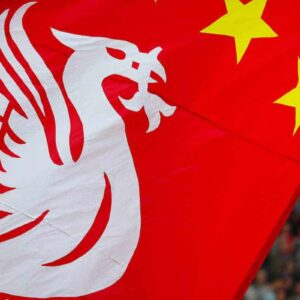
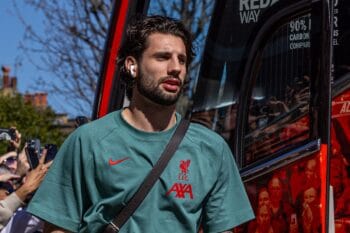
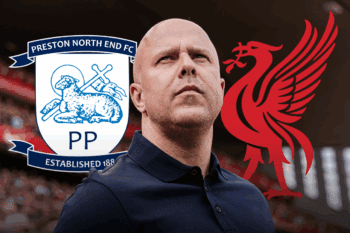

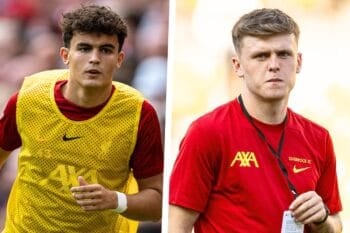
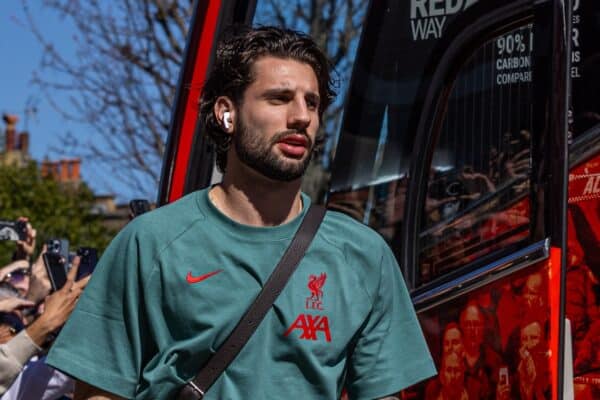
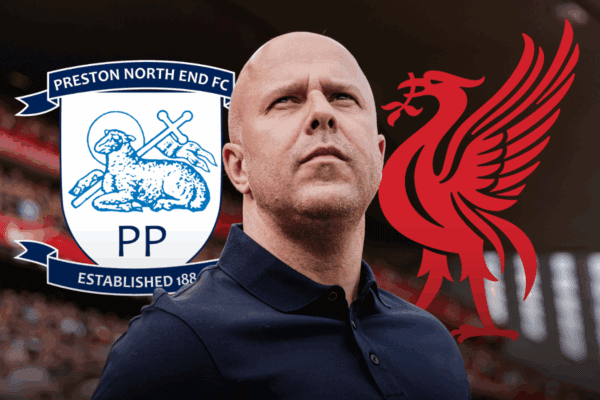

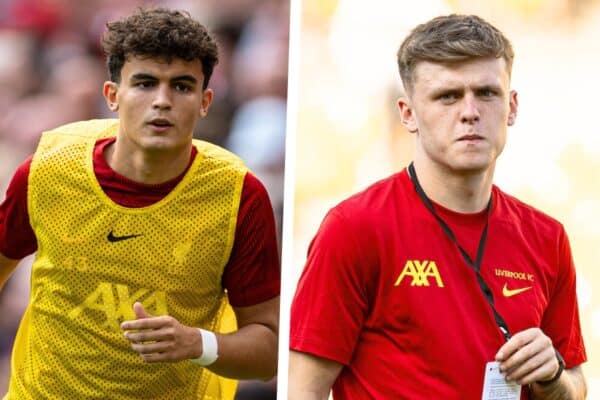

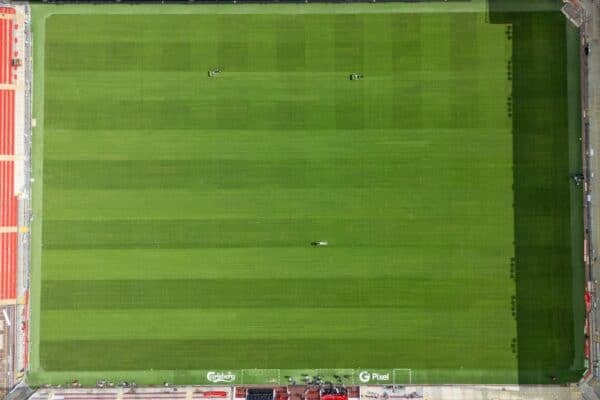
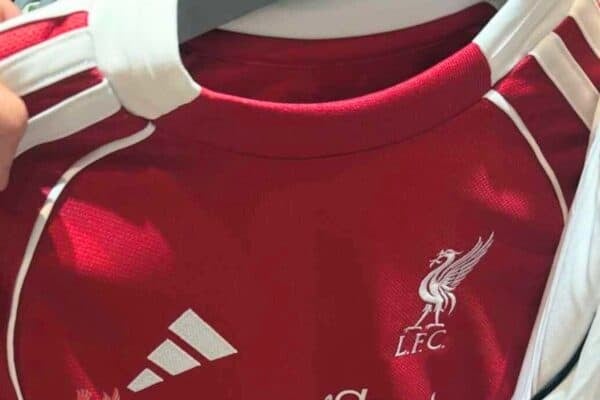
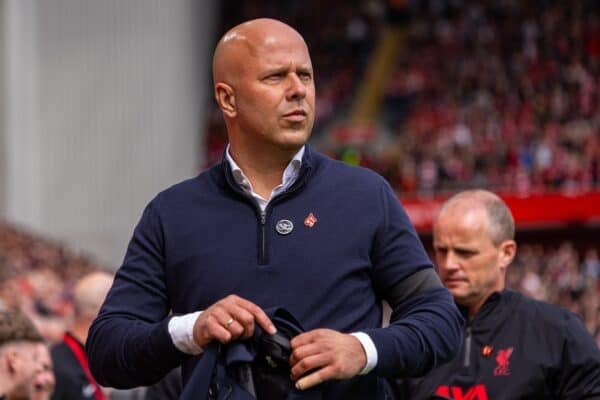





Fan Comments